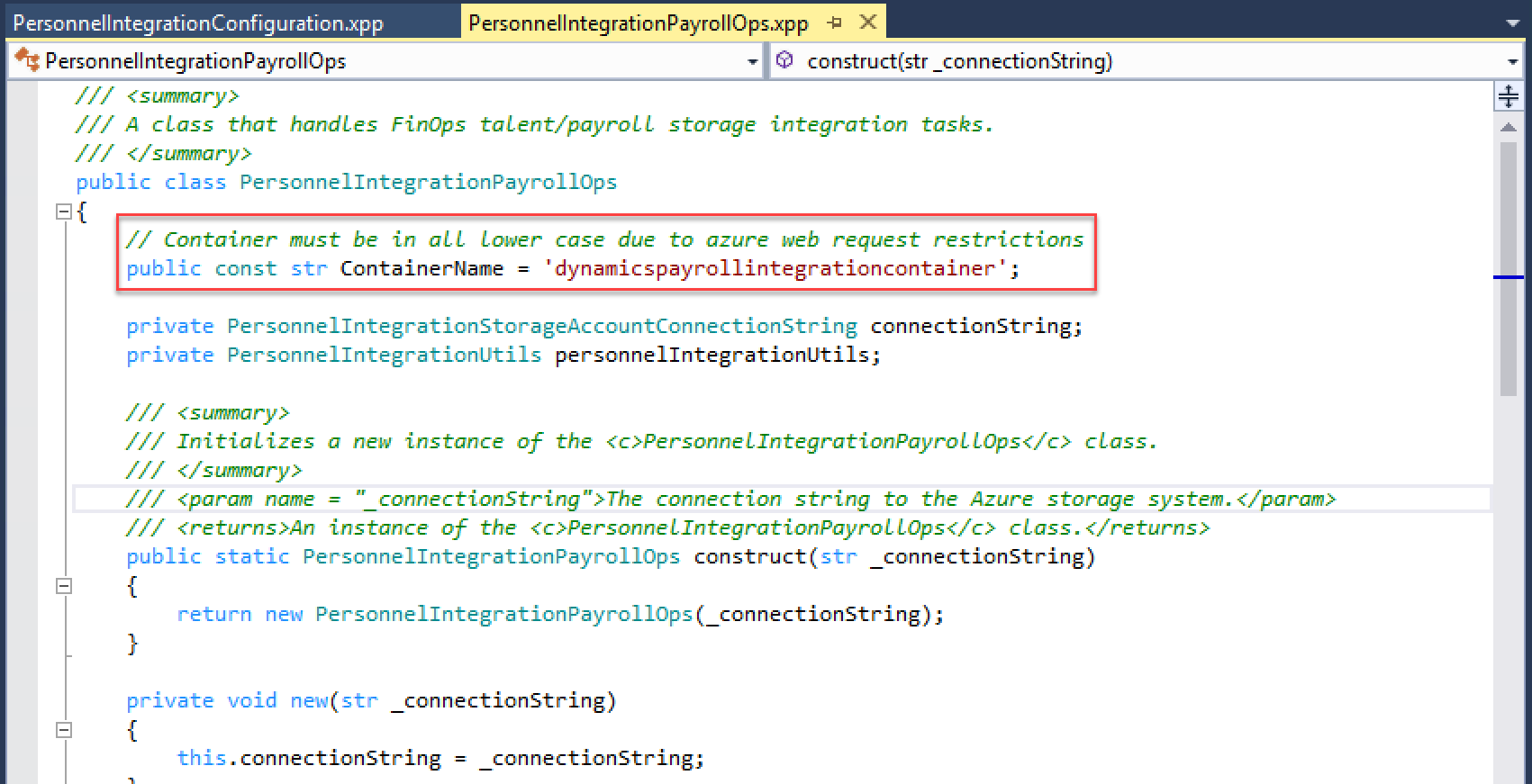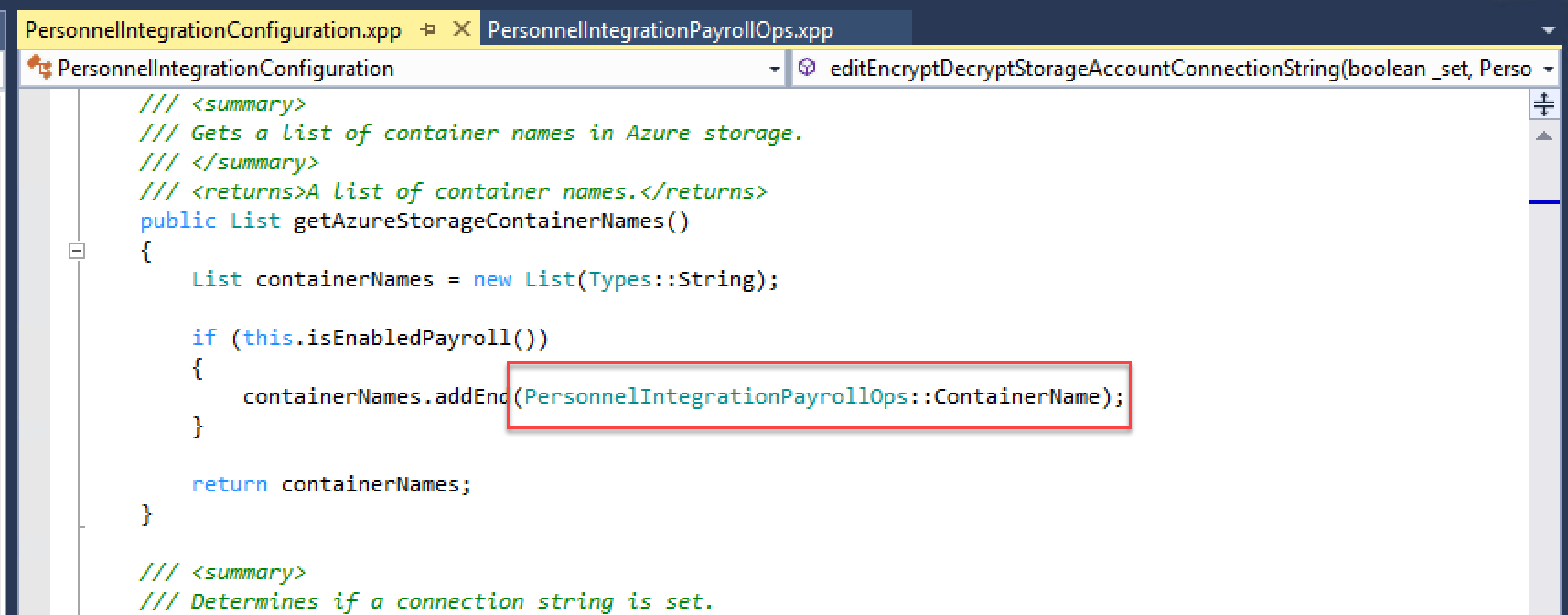Development guidelines for macros
-
Creating of Macro objects is prohibited, create specific class with public variables with constant values.
Example:
class TutorialMacro { public const str InfoString = 'This is the info string'; } class PRJ00001_TutorialConstUse { public static void main(Args _args) { info(TutorialClass::InfoString); } }Incapsulate logic into a single class for specific feature:

Example of using constants in the code:

-
No excessive macro/constants using in the code
Example (incorrect):
class PRJ00001_TutorialExcessiveMacroUse { public static void main(Args _args) { #define.OneConst(1) #define.TenConst(10) for (i = #OneConst; i <= #TenConst; i++) { } } }Example (correct):
class PRJ00001_TutorialExcessiveMacroUse { public static void main(Args _args) { for (i = 1; i <= 10; i++) { } } } -
No macro using in interfaces or import/export operations when data structure is fixed. Use literals instead to simplify the code.
Example:
... container c = file.read(); str s1 = conpeek(1); // no macro use to get first value str s2 = conpeek(2); // no macro use to get second value int i = any2num(substr(s1, 2, 10)); // no macro use for data transformation ...